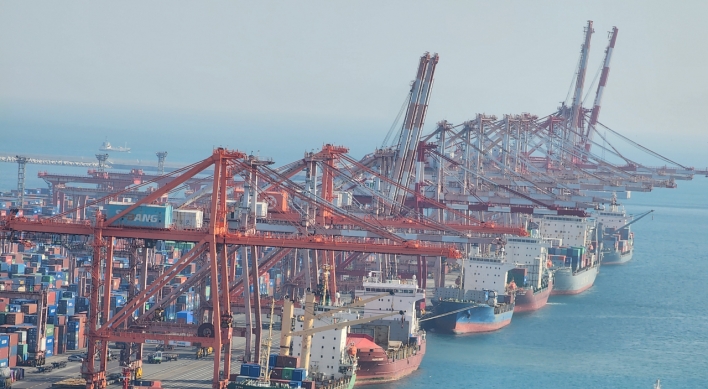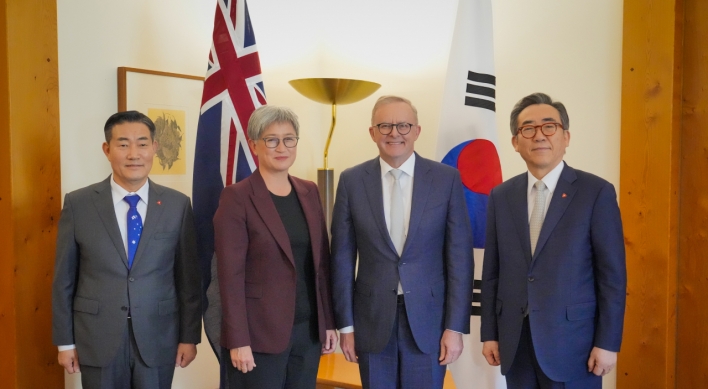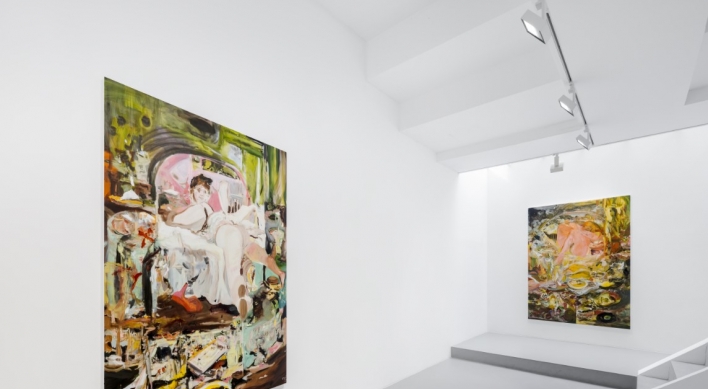A resigning prosecutor left a note of criticism of the prosecution, assessing it to be in “total disarray.” Paek Hye-sun at Daegu District Prosecutors’ Office asked her former colleagues whether they had no doubt about their political neutrality, fairness in investigation, and correctness in their judgment and standards on ever-changing social situations. But she apparently missed one thing in her reflection: the pervasive signs of corruption in the organization.
Lee Kuk-chul, CEO of a mid-size shipbuilding firm now under financial workout, released his secret record of lobbying activities to the media before he was arrested earlier this month on charges of bribery and business improprieties. His note had the names of nine present and former senior prosecutors as targets of his bribery. Among them were two retired prosecutors-general.
A more sensational disclosure involved a prosecutor who was alleged to have used a Mercedes-Benz sedan and a designer handbag, given by a lawyer in Busan who used her as a go-between to contact two prosecutors over a criminal case he had brought to the authorities. Probing into this scandal, investigators reportedly found the lawyer and the prosecutor had maintained extramarital relations for years. The prosecutor resigned last month.
Most embarrassing to the prosecution is that these allegations of corruption came at a time when the state investigation organization was wrestling with the National Police Agency over the right to initiate criminal probes. The leadership of the National Police has insisted that they should at least have the right to conduct independent probes into improprieties of prosecutors, if the prosecution has to retain its control of police in criminal investigations in general.
There were a few bribery scandals involving prosecutors that caused a further loss of public trust in the organization last year. A local businessman was accused of “sponsoring” a variety of off-duty activities, including playing golf and drinking at expensive bars, for all members of a prosecutors’ office in his area. A senior prosecutor was found to have used a luxurious Grandeur sedan that a businessman acquaintance had bought for him.
These cases apparently had some influence on lawmakers who were working on a revision to the Criminal Procedures Law focused on the division of investigative functions between the prosecution and police. When the revision bill was passed by the legislature last June, prosecutors protested, and Prosecutor-General Kim Jun-kyu resigned only a few months before his two-year tenure expired.
Kim’s replacement, Han Sang-dae, vowed utmost efforts to regain public trust in and respect for his organization, as all his predecessors did upon their inaugurations. Yet, power contests with the NPA continued this time over the Prime Minister’s Office’s drafting of enforcement provisions concerning the sharing of the investigative rights between the two organizations. The recurring exposures of prosecutors’ misbehavior reveal his internal cleanup drive was not fruitful.
Everyone concedes that Korean officialdom is not known for its cleanness, but the people have the right to demand that prosecutors should be a little different from other public servants. The public wonders how some prosecutors, receiving only several million won a month, could drive a luxury Grandeur or a Mercedes-Benz without drawing the attention of their seniors, until complaints related to their improprieties were filed by citizens. The adultery between the lawyer and the prosecutor had been brushed aside by other prosecutors as a matter of privacy.
Again we cannot but point out the banality and generality of corruption in the prosecution community. If their indiscretion is related anyway to their sense of privilege, something is really wrong with the investigative organization. As the “Mercedes prosecutor” emerges as the new icon of prosecution corruption, members of the organization need first to take a close look at themselves before engaging in their unseemly power struggle with police.
Lee Kuk-chul, CEO of a mid-size shipbuilding firm now under financial workout, released his secret record of lobbying activities to the media before he was arrested earlier this month on charges of bribery and business improprieties. His note had the names of nine present and former senior prosecutors as targets of his bribery. Among them were two retired prosecutors-general.
A more sensational disclosure involved a prosecutor who was alleged to have used a Mercedes-Benz sedan and a designer handbag, given by a lawyer in Busan who used her as a go-between to contact two prosecutors over a criminal case he had brought to the authorities. Probing into this scandal, investigators reportedly found the lawyer and the prosecutor had maintained extramarital relations for years. The prosecutor resigned last month.
Most embarrassing to the prosecution is that these allegations of corruption came at a time when the state investigation organization was wrestling with the National Police Agency over the right to initiate criminal probes. The leadership of the National Police has insisted that they should at least have the right to conduct independent probes into improprieties of prosecutors, if the prosecution has to retain its control of police in criminal investigations in general.
There were a few bribery scandals involving prosecutors that caused a further loss of public trust in the organization last year. A local businessman was accused of “sponsoring” a variety of off-duty activities, including playing golf and drinking at expensive bars, for all members of a prosecutors’ office in his area. A senior prosecutor was found to have used a luxurious Grandeur sedan that a businessman acquaintance had bought for him.
These cases apparently had some influence on lawmakers who were working on a revision to the Criminal Procedures Law focused on the division of investigative functions between the prosecution and police. When the revision bill was passed by the legislature last June, prosecutors protested, and Prosecutor-General Kim Jun-kyu resigned only a few months before his two-year tenure expired.
Kim’s replacement, Han Sang-dae, vowed utmost efforts to regain public trust in and respect for his organization, as all his predecessors did upon their inaugurations. Yet, power contests with the NPA continued this time over the Prime Minister’s Office’s drafting of enforcement provisions concerning the sharing of the investigative rights between the two organizations. The recurring exposures of prosecutors’ misbehavior reveal his internal cleanup drive was not fruitful.
Everyone concedes that Korean officialdom is not known for its cleanness, but the people have the right to demand that prosecutors should be a little different from other public servants. The public wonders how some prosecutors, receiving only several million won a month, could drive a luxury Grandeur or a Mercedes-Benz without drawing the attention of their seniors, until complaints related to their improprieties were filed by citizens. The adultery between the lawyer and the prosecutor had been brushed aside by other prosecutors as a matter of privacy.
Again we cannot but point out the banality and generality of corruption in the prosecution community. If their indiscretion is related anyway to their sense of privilege, something is really wrong with the investigative organization. As the “Mercedes prosecutor” emerges as the new icon of prosecution corruption, members of the organization need first to take a close look at themselves before engaging in their unseemly power struggle with police.
-
Articles by Korea Herald





![[Herald Interview] Mom’s Touch seeks to replicate success in Japan](http://res.heraldm.com/phpwas/restmb_idxmake.php?idx=644&simg=/content/image/2024/04/29/20240429050568_0.jpg&u=)




![[News Focus] Lee tells Yoon that he has governed without political dialogue](http://res.heraldm.com/phpwas/restmb_idxmake.php?idx=644&simg=/content/image/2024/04/29/20240429050696_0.jpg&u=20240429210658)








![[Today’s K-pop] Seventeen sets sales record with best-of album](http://res.heraldm.com/phpwas/restmb_idxmake.php?idx=642&simg=/content/image/2024/04/30/20240430050818_0.jpg&u=)